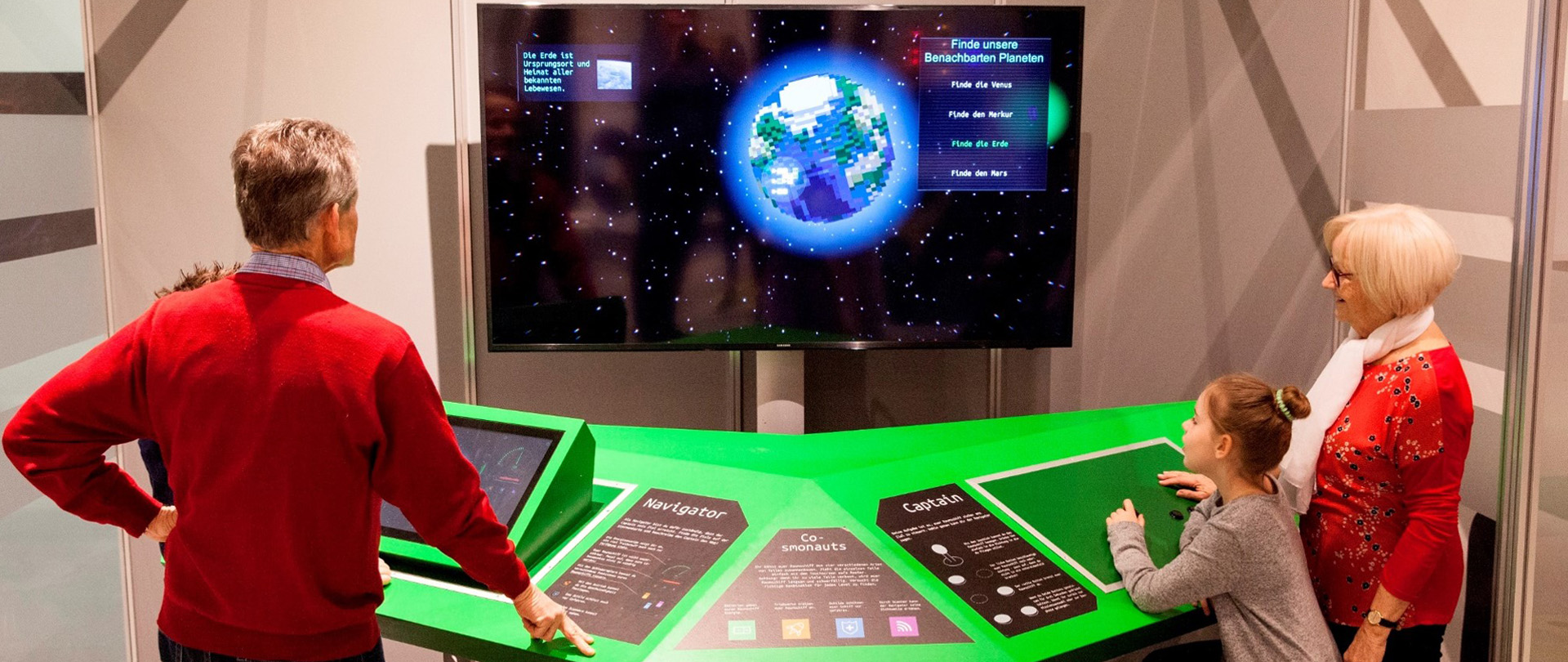InterPlayces

The project proposal InterPlayces introduces an approach for conceptualizing and creating intergenerational game and interaction designs for the older and younger generation via a co-located playground. With these playful artifacts the social and emotional well-being, as well as the bond between young and old are fostered. Games and playful mechanics are utilized to initialize and strengthen the knowledge transfer and exchange between the generations. To reach the defined research goals, game design concepts are developed that address the various needs and requirements of the different player groups. This is achieved through player roles that are adapted to the needs of the players, as well as via effective and intuitive interaction techniques and methods.
Objectives
According to the WHO the number of elderly persons (65+) in western countries will increase considerably in the following years (prediction: 34% of the worldwide population in 2050). These demographic developments have led to societal, political and technological challenges. Consequently, several initiatives were launched with the goal to increase the well-being of seniors through information- and communication technologies (ICTs). One very relevant factor that contributes to the well-being of elderly people is a frequent face-to-face contact with the family and close friends (especially young and old). Based on these facts, the question arises: how can the social exchange and the relationship between the generations being fostered via ICTs? A very promising solution to this issue can identified in the field of computer games (intergenerational games as a social medium). Several studies show that games are not only attractive for younger people, but also for the older generation. Seniors are keen in being actively engaged in playful activities.
However, young and elder people share significant differences in regard to genre preferences and play styles: elder people prefer to act strategically, while children frequently behave impulsively within games. Another distinction is revealed when looking at the knowledge and confidence to play games (input devices: smartphones, gamepads, etc.). Thus, simultaneous and cooperative play between young and old appears to be fairly seldom. Until now, no efficient game and interaction concepts are available that grant the heterogeneous player groups a satisfying game experience. Furthermore, the physical setting (place of playful activities) has not received much attention in the design of intergenerational games.
It is the main aim of the project, coined InterPlayces, to propose and to prototypically realize inclusive game- and interaction concepts in order to positively influence the well-being of elder people as well as to foster the social and emotional bond between young and old. Within the research project not only individual preferences of players will be considered by focusing on game mechanics and interaction techniques, but also socially engaging design possibilities will be explored. This is achieved by integrating the physical play dimension in the form of a co-located playground in a (semi-)public setting (field of application: museum WELIOS) into the design process. Furthermore, the InterPlayces will include a diverse range of sensors (example: position trackers) as well as other input methods (mobile devices, etc.) to grant players intuitive and easy to learn means to interact with the game prototypes. The practical realization of the prototypes is of utmost importance. Approaches will be conceptualized, prototypically implemented and will be evaluated by the relevant target groups. Well-established methods such as user centered design, usability tests and workshops will be employed to guarantee that players are able to co-create and test the prototypes. Additionally experts in the field of interaction design (NETURAL) will provide vital feedback and an economic-orientated perspective.
Team
University of Applied Sciences Upper Austria – Playful Interactive Environments
- FH-Prof. Dr. Michael Lankes (project leader)
- FH-Prof. Dr. Jürgen Hagler
- Jens Cherukad, BSc
- Moritz Rührlinger, MSc
University of Applied Sciences Upper Austria – Mobile Interactive Systems
- FH-Prof. Dr. Clemens Holzmann
- Kathrin Kefer, MSc
Johannes Kepler Universität Linz – Department of Work, Organizational and Media Psychology
- Prof. Dr. Bernad Batinic
- Dr.in Barbara Stiglbauer
- Mag.a Fabiola Gattringer
Netural GmbH – Digital Media in Excellence
- Dr. Stephan Lechner
- DI (FH) Markus Pargfrieder
- Ernst Demmel
- Mag. Kathrin Hausberger, MA
Welios Science Center
- Mag. Michael Holl